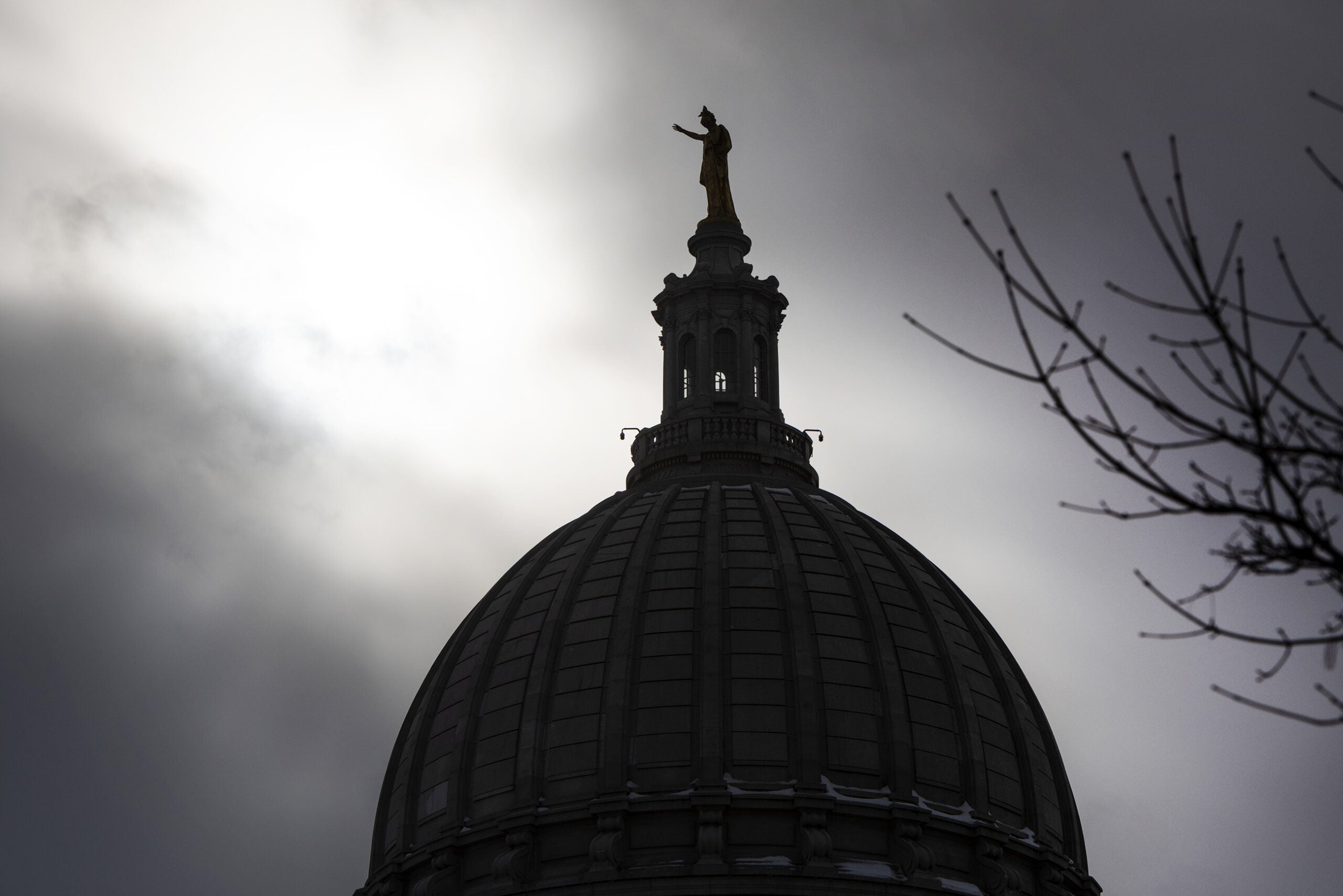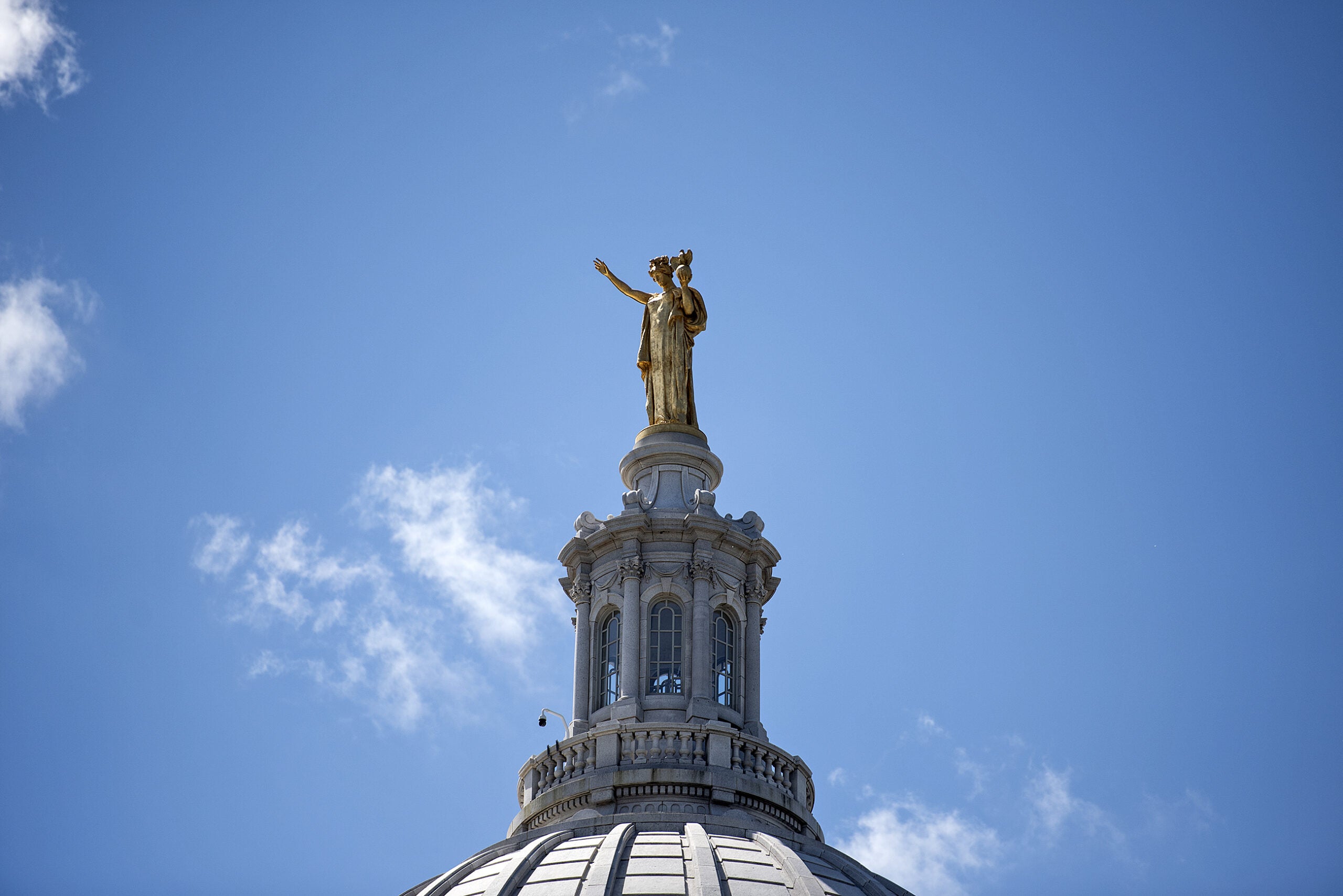The Wisconsin Assembly advanced bills Tuesday that would prevent the state and its agencies from requiring COVID-19 vaccinations. Lawmakers also approved bills that would increase penalties for crimes ranging from retail theft to damaging historical property.
Republicans have proposed a series of bills in recent months to ban or otherwise add workarounds for COVID-19 vaccine requirements, arguing such measures restrict people’s personal freedoms.
Wisconsin’s seven-day test positivity rate continues to trend above 24 percent as of Tuesday.
Stay informed on the latest news
Sign up for WPR’s email newsletter.
State lawmakers spent more than half an hour debating a bill that requires employers to accept proof of natural immunity against COVID-19 as an alternative to a COVID-19 vaccine or weekly testing requirements.
State Rep. Lisa Subeck, D-Madison, said she was “mystified” by the legislation.
“I know that we all want the COVID-19 pandemic to be over with,” said Subeck. “I know that we want our communities to go back to a sense of normalcy, but we cannot do that if we don’t get the pandemic under control.”
Subeck noted how individuals previously infected with COVID-19 have gotten it again.
“That natural immunity that you’re counting on is not rooted in medical evidence,” said Subeck. “We need to continue to get people vaccinated.”
State Rep. Cody Horlacher, R-Mukwonago, the bill’s author, said vaccine mandates are magnifying workforce troubles in many economic sectors. A survey last year found 5 percent of unvaccinated adults quit their jobs over COVID-19 vaccine mandates.
“COVID is very real, I’m not saying it is not,” Horlacher said. “But for those people who have had COVID and have fully recovered, you should not be forced to make the moral decision of whether or not to take the jab or keep your job.”
The bill passed on a 59-34 party-line vote. It now heads to the state Senate. If the legislation passes there, it’s likely to face a veto from Democratic Gov. Tony Evers.
Another bill, meanwhile, would forbid the state from “(discriminating) against any person based on whether the person has received a vaccine against the SARS-CoV-2 coronavirus … or is able to show proof of having received such a vaccine.”
“It’s a real life example of folks who are worried about their private medical information having to be shared just to gain access to their government services,” said state Rep. Scott Krug, R-Nekoosa, the bill’s author.
Questions about a person’s vaccination status are currently legal under federal law.
The bill passed the Assembly on a voice vote and has been sent to the state Senate for concurrence.
The measures are part of a national trend of GOP legislation pushing back against the COVID-19 vaccine.
Responding to protests and statue teardowns
The Assembly also passed legislation adjusting laws around felony charges for damaging historical monuments.
That bill broadens regulations around damaging monuments, making it a Class I felony to damage structures, statues and monuments on public property or maintained by state or local governments. That could mean up to three and a half years in prison and a fine of up to $10,000.
The measure follows the toppling of two statues on the grounds of the state Capitol in Madison in the summer of 2020.
“There is a correct way to seek removal of the displays for some of the objectionable individuals in our nation’s history,” said state Rep. Rick Gundrum, R-Slinger. “One has the ability to hopefully do research so that the group they’re leading doesn’t pull down a statue out of unexplainable ignorance.”
No Democrats spoke on the floor during debate on the bill. Ultimately, it passed on a 59-33 vote, with one Democrat, state Rep. Steve Doyle, D-Onalaska, voting in favor.
Meanwhile, a similar bill in the Senate creates a definition of “riot” in public statutes while making it a misdemeanor to attend a riot and a felony to “knowingly participate in a riot that results in substantial damage to property or personal injury.” Those found guilty of such charges would be required to serve prison time.
State Rep. Francesca Hong, D-Madison, said the bill blurs the lines between protests and riots.
“Protest is democracy,” said Hong. “This bill being brought forward today by my friends across the aisle is a declaration of war against the First Amendment.”

State Rep. Barbara Dittrich, R-Oconomowoc, said she had friends living in Kenosha who were terrified for the safety of their families during the summer 2020 protests that followed the police shooting of Jacob Blake. Those protests led to the arrest of Kyle Rittenhouse after he shot and killed two people and injured a third. Kenosha was in the spotlight again in November 2021 when Rittenhouse went to trial, where he was found not guilty on all charges.
“People deserve to feel safe in their workplace, in their homes, without physical threat of violence,” said Dittrich.
The bill ultimately passed on a 59-34 vote. Having passed both chambers, the bill will make its way to the governor’s desk.
Assembly takes action on catalytic converters, fentanyl testing strips
Other bills the Assembly passed Tuesday would:
- Add a requirement for the state Department of Corrections to recommend revoking extended supervision, parole or probation for a person charged with a crime while not on release. On a 56-37 vote, the bill now heads to the state Senate.
- Require scrap dealers to maintain records on sales of catalytic converters and allow law enforcement to obtain records on such purchases. The bill passed the Assembly on a voice vote, and now goes to the governor.
- Decriminalize fentanyl testing strips. Fentanyl has driven a spike in opioid deaths in Milwaukee and across the state. Passing the Assembly on a voice vote, the bill is headed for the governor’s desk.
- Require Evers to allocate at least $10 million of the state’s funds from the federal American Rescue Plan Act to grant programs to combat crime in areas across the state.
- Institute a mandatory minimum of six months of incarceration for a person who is convicted of committing retail theft three times in 10 years. The bill passed 58-34, and moves to the state Senate.
- Instruct the state superintendent to create curriculum for fifth graders upward on how to interact with law enforcement. It passed 58-34 and heads to the Senate.
Wisconsin Public Radio, © Copyright 2025, Board of Regents of the University of Wisconsin System and Wisconsin Educational Communications Board.


